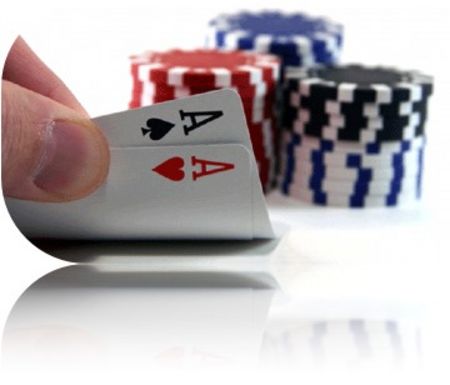|
|
Review
 Don't fold the winning hand
Don't fold the winning hand-
One of the most costly mistakes you can make in limit Hold'em is folding the
winning hand on the river.
- With the good pot odds, calling on the river is usually correct if you feel you
have some chance of winning the hand.
- An important consideration in determining whether calling is correct is the
type of opponent you are against. You can fold your weak hands with more
confidence against a tight player who never bluffs than if you are against a
tricky player who is not so straightforward.
- Another important consideration is whether or not the bettor could have been
on a draw. A weak hand can win if your opponent is bet ting a busted draw.
Folding to Save Bets -
Sometimes you need to fold to save bets when it is obvious that you have a
losing hand. The type of opponent, type of board, and bet ting sequences
should help you in your decision.
- The more opponents you are against, the more likely it is that you need a
strong hand to win. This is especially true when there has been a bet and a
call on the river.
- Whenever the flop is two-suited and there is more than one opponent playing
to the river, there is a decent probability that one of them is on a flush draw.
This is especially true when they couldn't be drawing to overcards or a
straight.
- Generally fold against an opponent who bets out into several players on the
river with a scary board.
Betting or Raising to Gain Bets -
Only bet or raise a good hand on the river against a lone opponent when you
have at least a 50% chance of winning when your opponent calls. This
should be even higher if there is a risk that your opponent could raise with a
better hand and you would call.
- Considerations when betting into a lone opponent on the river with a good
hand include:
Probability that you will win in a showdown (should be at least 50%)
Probability that your opponent would raise and you would call
Probability that your opponent would bet a weaker hand it you check
but fold this hand if you come out betting
Probability that your opponent would check a losing hand that he
would call with if you bet.
- Sometimes it is correct to bet into a scary board on the river with a strong
hand if you can safely fold when you are raised. This rule does not apply
against tricky opponents
- Check-raising can be a good strategy with a strong hand to either induce a
bluff or gain more bets when you are confident that an opponent will bet and
call your raise.
- Check-raising is risky when the board would scare your opponents from
betting; therefore, usually bet out to gain at least one bet.
- Sometimes consider just calling rather than raising your strong hands when
there are still opponents to act behind you. This is especially (rue if there is
even a small chance that the bettor has the nuts and will reraise or there is a
good chance you might split the pot with the bettor.
Betting or Raising as a Bluff-
Getting an opponent to fold the best hand is a great achievement since you
win the entire pot.
- The most common example is when you are on a draw and you bet hoping
that your opponent is on a busted draw also or will fold a weak pair.
- Bluffs are generally more successful against strong opponents who are
capable of folding a weak hand such as middle or bottom pair. Most weak
players tend to call with anything.
- Bluff raises on the river are generally not profitable, as it is difficult to get an
opponent to fold who has already bet on the river, and you have reduced pot
odds on your raise.
- A scare card on the river can improve your chances for a successful bluff.
NEXT..
Playing Your Opponent
|
|
|
|
|

